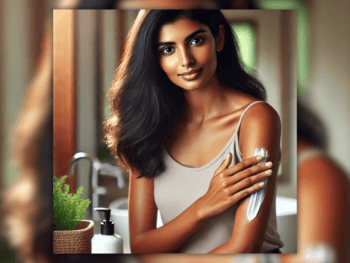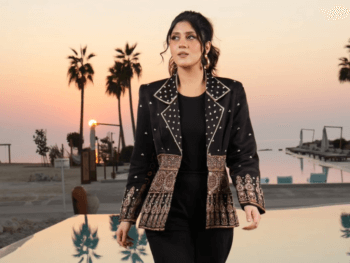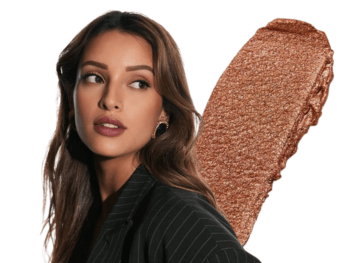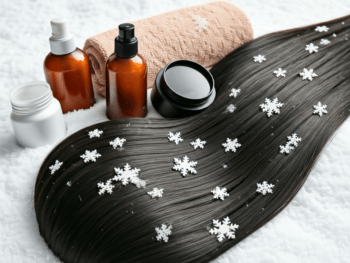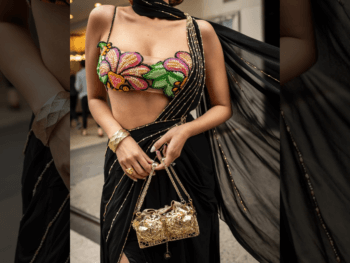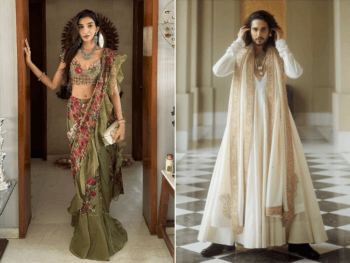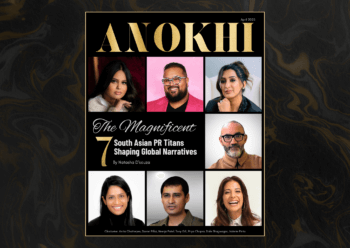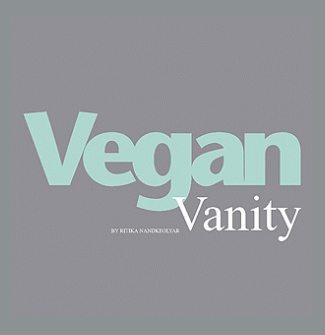
Animal Awareness For Beauty Companies Is More Than Skin Deep
Ever wonder what’s in your favourite lipstick? Jessica Martinez, a 22-year-old art student from Ottawa, can rattle off the ingredient list in hers, a pretty impressive feat considering most of them are in Latin. But Jessica doesn’t just have a thing for language and beauty. She also knows her makeup’s recipe because she is one of the growing number of women who puts her beauty dollars where her heart is and buys vegan cosmetics. Twenty-nine-year-old Tachelle Kirkpatrick is also conscious of what she buys. “I don’t want to ingest anything that’s made from animals,” says the federal government employee, “so why should I put it on my face?”
Vegan cosmetics are not just beauty aids that are not tested on animals, they are also products made without animal or animal byproduct ingredients. As an increasing number of women turn vegetarian or vegan, they choose alternatives for their beauty regimes. Even non-vegan consumers often search for animal-free alternatives, sometimes because they’re developing an increased awareness of the world around them and other times because they are looking for alternatives to deal with their skin sensitivities – some allergists say that common skin complaints such as dermatitis can be cured by switching to more natural products and avoiding chemicals and additives.
More and more companies, including some mainstream brands, are responding to the needs of women by making some beauty products within their lines completely vegan. Add Lush to that list, the purveyor of bath bombs, shampoos and lotions. Everything available in the retail outposts of this British-born beauty chain is vegetarian, and an increasing number of products are now vegan, identified with a "V." Lush also prides itself on being mostly natural, and its ingredient list, which include both English and Latin names, has a colour-coded system that singles out non-natural ingredients. The latter is a bonus for those worried about potential toxins because often vegan does not equal chemical or additive-free. A vegan and nearly all-natural bestseller is Lush’s Anti-Dandruff Snake Oil Scalp Massage Bar ($7.95 CDN). Highly fragrant, like most Lush products, the hair remedy contains fair trade cocoa butter, shea butter, alkanett extract, peppermint oil, lavender oil, tea tree oil, geraniol, limonene, linalool and perfume. Only the perfume is a chemical additive; the synthetic-sounding geraniol, limonene and linalool are all naturally found in essential oils.
The biggest name in purely vegan cosmetics is Urban Decay, a 13-year-old California company known for its goth and alternative shades. Fortunately, even conservative cosmetic wearers can find plenty of vegan colour options from the company, which are available at Sephora both in stores and online. Urban Decay even has synthetic-fiber makeup brushes (instead of animal bristles, which are commonly used in high-end brands) for blush and for powder.
Ecco Bella, a young line that has appeared in the pages of Elle and Shape, carries numerous vegan products including its best-selling eye shadows, primer potion and red lipstick. According to the company, Ecco Bella has a regulatory department that works directly with the vendors and their suppliers to obtain signed documentation ensuring all vegan products are compliant with vegan standards and are not tested on animals.
How can you tell if a product is vegan? If it’s not written on the product label, unfortunately, there’s no easy way to tell, and for most drug and department store brands, you’ll have to do some digging. While this may be a time-consuming process, it is relatively easy as most cosmetic companies are happy to send you an ingredient list for any of their products upon request.

BY: RITIKA NANDKEOLYAR / PUBLISHED: SUMMER 2009 ISSUE












































































